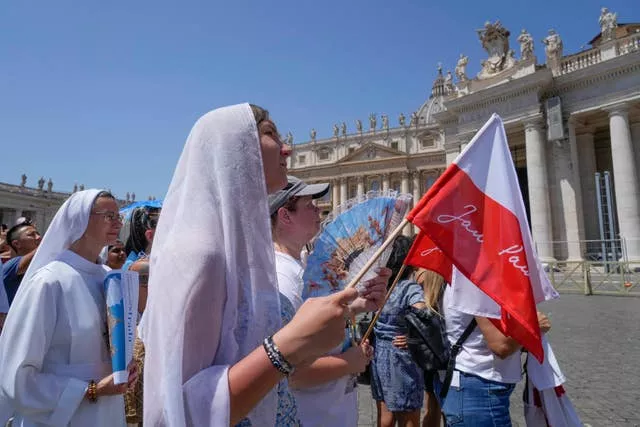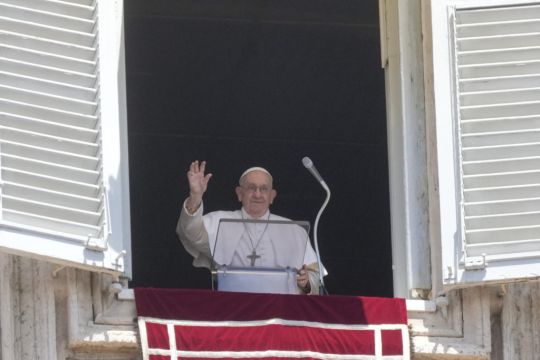Pope Francis has announced he has chosen 21 new cardinals, including prelates from Jerusalem and Hong Kong, as he continues to leave his mark on the body of churchmen who will select his successor.
The pope announced his selection during his customary weekly public appearance in St Peter’s Square, saying the ceremony to formally install the churchmen as cardinals would be held on September 30.
Among those chosen are several prelates holding or about to assume major Vatican posts, including the archbishop from La Plata, Argentina, Archbishop Victor Manuel Fernandez, who the pope recently named to lead the office for ensuring doctrinal orthodoxy and overseeing processing of allegations of sexual abuse against clergy worldwide.
The new cardinals also include Hong Kong Bishop Stephen Sau-yan Chow and the Vatican’s top official in the Middle East, Monsignor Pierbattista Pizzaballa, the Latin Patriarch of Jerusalem.

These two churchmen guide congregations in geopolitical areas where Catholics form a small minority, and are of keen concern to the Vatican.
For decades, the Vatican and China have experienced tensions alternating with improvement of relations over the Communist-led nation’s insistence that it has the right to appoint bishops and the jailing of priests who profess loyalty to the pope.
Cardinals serve as advisers to the pontiff on matters of teaching and administration, including the Vatican’s scandal-plagued finances. But their most crucial duty is gathering in a secret conclave to elect the next pontiff.
Francis has named numerous batches of new cardinals in his 10-year papacy. This means, increasingly, that the men who will vote for whoever succeeds him, in the event of his resignation or death, are churchmen supportive of his values, priorities and perspectives.
Other churchmen chosen to become cardinals include individuals from Cape Town, South Africa; Juba, South Sudan, which the pope visited earlier this year on a pilgrimage; Penang, Malaysia; and Lodz, Poland.
Eighteen of the 21 new cardinals are younger than 80 and would be eligible to vote in a conclave.







